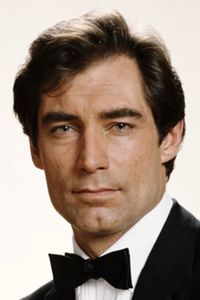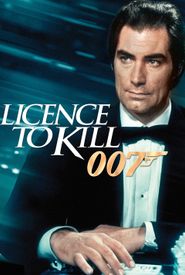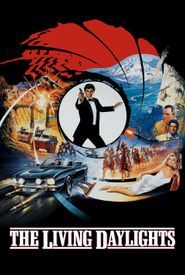Here is the biography of Timothy Dalton:
Timothy Dalton is a 6'2" green-eyed actor, born in Colwyn Bay, North Wales, the oldest of five children of Dorothy (Scholes) and Peter Dalton-Leggett. His father was stationed in Colwyn Bay during World War II and later moved the family to Manchester, where he worked in advertising and raised the growing Dalton family in an upper-class neighborhood outside of Belper, Derbyshire.
Dalton was enrolled in a school for bright children, where he excelled in sports and was interested in the sciences. He was fascinated with acting from a young age, possibly due to the fact that both his grandfathers were vaudevillians. His destiny was clinched when he saw a performance of "Macbeth" at age 16.
After leaving Herbert Strutt Grammar School at age 16, he toured as a leading member of Michael Croft's National Youth Theater. Between 1964-66, he studied at the Royal Academy of Dramatic Art (RADA). Just before completing his two years, he quit and joined the Birmingham Repertory Theatre, playing the lead in many productions under the direction of Peter Dews.
Dalton's talent and classic good looks immediately landed him professional work in television, guest-starring on an episode of the short-lived series, Judge Dee (1969),and as a regular on the 14-episode series Sat'day While Sunday (1967) with the young Malcolm McDowell.
In the 1970s, Dalton developed a pattern in his films that would follow him throughout his career: costume dramas where he played royalty. He was contracted to play a role in Lady Caroline Lamb (1972) but was replaced at the last moment. Dalton sued the company and won, but the film went on without him.
In the early 1970s, he decided to further hone his skills by going back into the theater full time. He signed on with the Royal Shakespeare Company (RSC) and the Prospect Theatre Company (PTC),and toured the world with both, playing the leads in "Romeo and Juliet", "King Lear", "Henry V", "Love's Labours Lost", and "Henry IV" - parts 1 and 2.
In the mid-to-late 1980s, Dalton narrated many nature documentaries, most notably several episodes of the UK series Wildlife Chronicles (1987). In the spring of 1986, he teamed with Vanessa Redgrave for another revival of a Shakespeare production, The Taming of the Shrew (1988),and his interpretation of Petrucchio received uniformly high praise.
In 1987, Dalton was approached to play James Bond, and although he had to decline initially, he agreed to play the role in 1987's The Living Daylights (1987) and 1989's Licence to Kill (1989). Although Licence to Kill (1989) suffered from a lack of marketing, Dalton's interpretation of "Bond" in this film received critical acclaim in some quarters as being the closest to author Ian Fleming's literary "Bond".
After Licence to Kill (1989),Dalton returned to one of his strengths, costume drama, in The King's Whore (1990). He also starred in the Disney action adventure The Rocketeer (1991) and the title role of another historical epic, Christopher Columbus: The Discovery (1992),although the film was eventually abandoned.
In the 1990s, Dalton continued to work in film and television, starring in the A&E production Framed (1992),which won a bronze medal in the 1993 New York Film Festival, and the documentary In the Company of Whales (1992),which won a silver medal in the 1994 New York Film Festival.
In 1994, Dalton took on the role of Rhett Butler in the eight-hour miniseries Scarlett (1994),produced by Robert Halmi Sr. for the Hallmark Hall of Fame. After two months of negotiations, the role of James Bond went to Pierce Brosnan.
In the summer of 1995, Dalton journeyed to Canada to shoot Salt Water Moose (1996),and in the spring of 1996, he made the IRA drama The Informant (1997) in Ireland and Passion's Way (1999) in Prague.
In 1995, Dalton began a relationship with Oksana Grigorieva, which produced a child in 1997, Dalton's son Alexander. Over the following years, Dalton has been a caring and loving father of his son. Very much a private man, Dalton's pastimes include fishing, reading, jazz, opera, antique fairs and auctions, and, of course, movies.



















































































